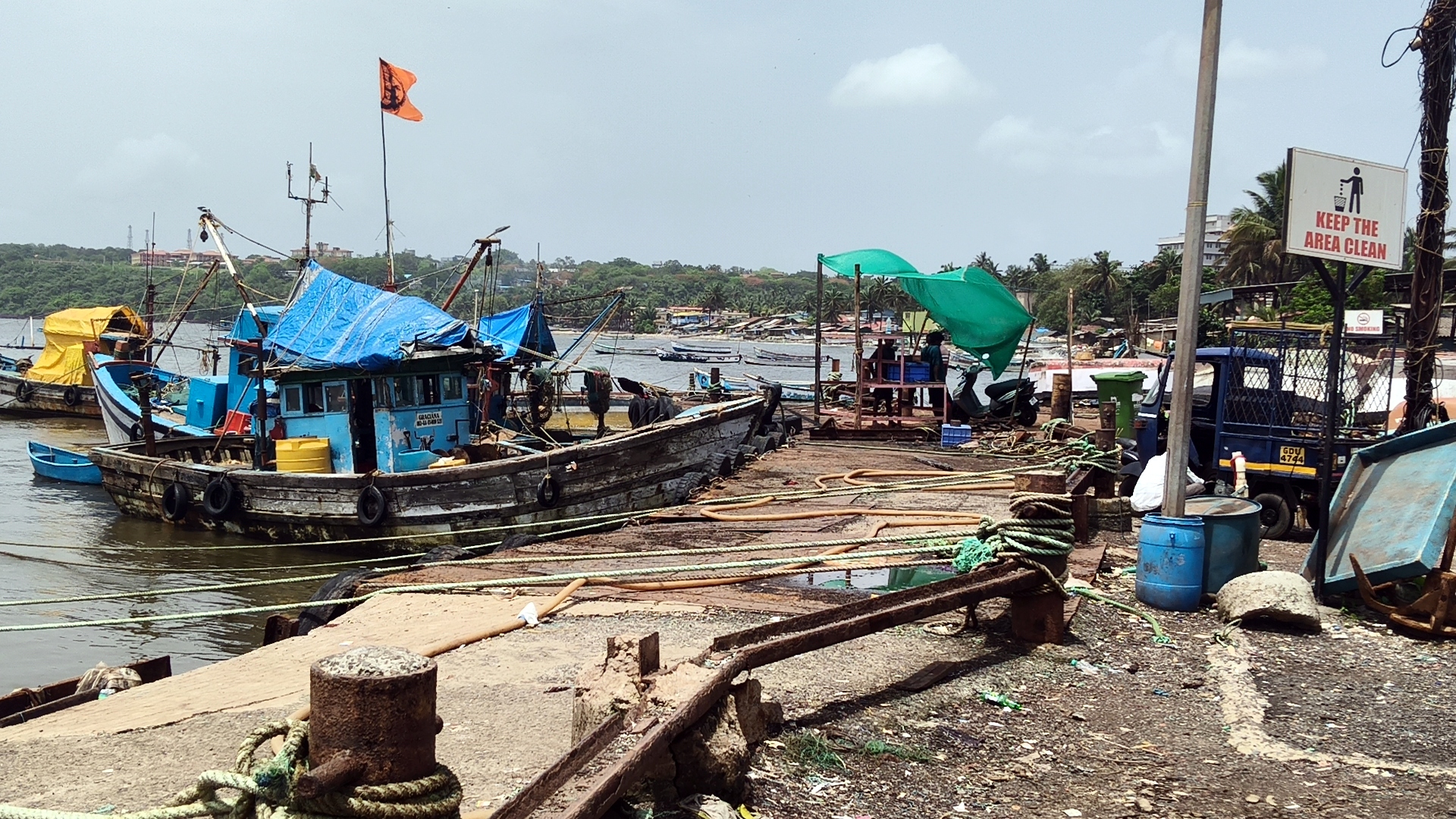
The Kharewaddo jetty in Vasco.
VASCO
With the close of yet another fishing season, the mood at Kharewaddo’s bustling jetty is far from celebratory.
What should have been a time of recuperation and reward has once again turned into a period of uncertainty and despair for hundreds of fishermen and boat owners. The community, which has long relied on the seas for sustenance, finds itself stranded amidst broken promises, government apathy, and mounting losses.
Goa Fishing Boat Owners Association (GFBOA) President and former minister Jose Philip D’Souza minced no words as he criticised both State and Central governments for turning a blind eye to the plight of Kharewaddo’s fishermen.
“The season has ended, but our problems remain the same. The government has completely failed us,” said D’Souza.
Mixed season with heavy losses
D’Souza explained that while a few big boat owners involved in deep-sea fishing managed moderate profits, the vast majority of small boat operators struggled to stay afloat—literally and financially.
“Only a fraction of boat owners benefited this season. Others had to suffer due to natural calamities and government neglect. In May, the pre-monsoon showers and cyclone alerts kept most boats ashore. That’s our most crucial month for earnings, especially to pay workers’ salaries. Many had to pay from their own pockets,” he said.
Crumbling jetty: symbol of neglect
At the heart of the crisis is the dilapidated and congested Kharewaddo fishing jetty, which remains unchanged despite years of petitions, ministerial visits, and political promises.
“We have over 250 boats operating from a jetty that cannot handle the load. Wooden boats crash against each other due to lack of space, causing damage that wipes out our earnings. It’s a temporary jetty, and we’ve been begging for an upgrade for decades. Nobody listens anymore,” D’Souza lamented.
He pointed out that while new jetties have been developed at Betul, Malim, and even smaller villages like Cortalim, Kharewaddo remains neglected.
“Why this step-motherly treatment? Are our lives worth less than others’? Every government that comes promises change, but nothing has moved on the ground,” he added.
Repeated visits by Union and State ministers — including Union Fisheries Minister Purushottam Rupala — have amounted to little more than photo ops, said the GFBOA President. Local MLAs from ruling and opposition parties have raised the issue in the Assembly, but nothing concrete has come of it.
Subsidies stopped, dues unpaid
Adding to their woes is the discontinuation of fuel VAT subsidies, once a crucial buffer that helped fishermen offset high operational costs.
“We used to get VAT reimbursed for the fuel used by boats. This was our lifeline. The government not only stopped it but hasn’t even cleared our dues from two years ago. How can a business survive under these conditions,” asked D’Souza.
He said several boat owners have already sold or scrapped their vessels and migrated abroad due to unsustainable losses.
“We’re not asking for charity. We’re asking for what was promised. Instead, we’re being punished for trying to keep a traditional business alive,” he said.
“We’re tired. We’ve lost hope. Our cries have fallen on deaf ears for decades. The government has neither given us a new jetty, nor cleared our old subsidies. They’ve abandoned us completely,” D’Souza said.
Traditional fishing dying a slow death
D’Souza painted a grim picture of the future of traditional fishing in Goa, warning that the industry is collapsing under the combined weight of rising costs, government indifference, and generational fatigue.
“Fishing is a traditional occupation passed down through generations. But today, young Goans don’t want to take it up because there’s no future in it. Owners are selling their boats, moving out of Goa, even out of India, because they can’t survive anymore,” he said.
“Fuel prices are high, labour costs are up, and now even basic government support has dried up. How is one supposed to survive when every year you end up spending more than you earn?” he asked.
As the sea remains off-limits for the next two months due to the fishing ban, Kharewaddo’s fishing community faces not just a pause in work, but a pause in their very survival. The silence from the government, they say, is now louder than the waves that once sustained them.